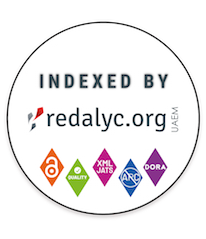Beans: feasible practices for mothers of school children.
DOI:
https://doi.org/10.15517/am.v15i3.11883Keywords:
beans, behavior tests, alimentary practices.Abstract
Feasible practices with regards to bean purchase,
storage, preparation, consumption and preservation for
mothers of school children from a Costa Rican urban
community were identified in this study. Nineteen ideal
practices were defined based on the mothers’ actual practices
which were obtained through an initial assessment. These
ideal practices were used later on to conduct behavior tests,
in order to identify the feasible practices, i.e., those that have
a good chance of being adopted by the population. Through
the behavior tests, it was determined that out of the proposed
ideal practices, eight were feasible to be adopted by the
mothers. They considered that these practices were
innovative, simplified their daily chores, or provided some
kind of health benefit. On the contrary, practices that were
more laborious, required previous planning or implied a
drastic change in their alimentary habits were the ones that
resulted least feasible. This work concluded that the most
feasible practices for the population to adopt are those that
are not very different from their usual alimentary practices.
For this reason, whenever a change is to be made in a group
of individuals, the effort must start from their day-to-day
habits.
Downloads
Downloads
How to Cite
Issue
Section
License
1. Proposed policy for open access journals
Authors who publish in this journal accept the following conditions:
a. Authors retain the copyright and assign to the journal the right to the first publication, with the work registered under the attribution, non-commercial and no-derivative license from Creative Commons, which allows third parties to use what has been published as long as they mention the authorship of the work and upon first publication in this journal, the work may not be used for commercial purposes and the publications may not be used to remix, transform or create another work.
b. Authors may enter into additional independent contractual arrangements for the non-exclusive distribution of the version of the article published in this journal (e.g., including it in an institutional repository or publishing it in a book) provided that they clearly indicate that the work was first published in this journal.
c. Authors are permitted and encouraged to publish their work on the Internet (e.g. on institutional or personal pages) before and during the review and publication process, as it may lead to productive exchanges and faster and wider dissemination of published work (see The Effect of Open Access).



























